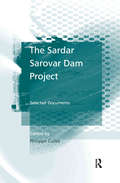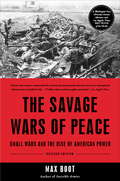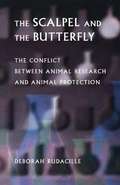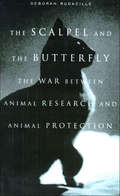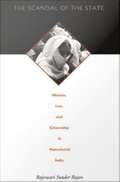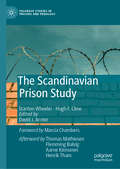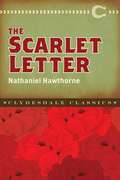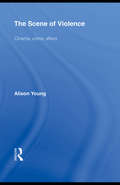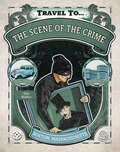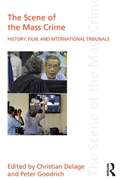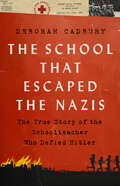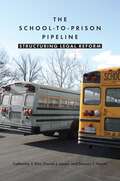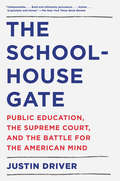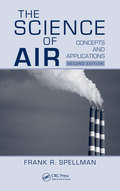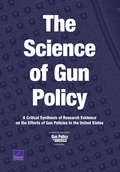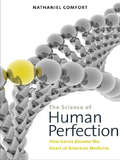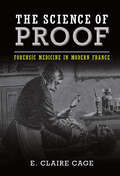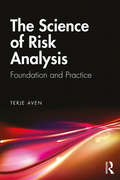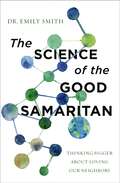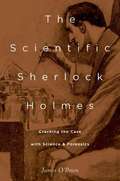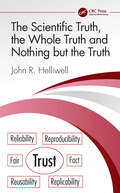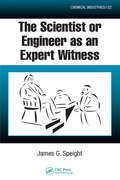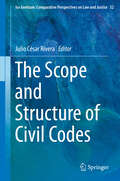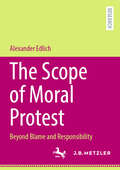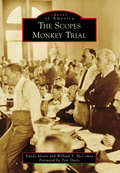- Table View
- List View
The Sardar Sarovar Dam Project: Selected Documents
by Philippe CulletThe Sardar Sarovar Project has been one of the most debated development projects of the past several decades at both an international level and within India itself. Cullet's volume brings together all the key documents relating to the project: including those pertaining to World Bank loans, the judicial pronouncements of the Supreme Court and documents relating to specific local level issues - in particular environment and rehabilitation. The work includes an introductory section focusing on the history of the project, the involvement of the different actors, the impacts on the local population, and a general analysis of the controversy surrounding it. In providing an easily accessible source for all the main documents relating to this landmark project, this compilation will be a valuable resource for researchers and policy-makers working in the areas of International Environmental Law and International Development Law.
The Savage Wars Of Peace: Small Wars And The Rise Of American Power
by Max BootAmerica's "small wars," "imperial wars," or, as the Pentagon now terms them, "low-intensity conflicts," have played an essential but little-appreciated role in its growth as a world power. Beginning with Jefferson's expedition against the Barbary Pirates, Max Boot tells the exciting stories of our sometimes minor but often bloody landings in Samoa, the Philippines, China, Haiti, the Dominican Republic, Nicaragua, Mexico, Russia, and elsewhere. Along the way he sketches colorful portraits of little-known military heroes such as Stephen Decatur, "Fighting Fred" Funston, and Smedley Butler. From 1800 to the present day, such undeclared wars have made up the vast majority of our military engagements. Yet the military has often resisted preparing itself for small wars, preferring instead to train for big conflicts that seldom come. Boot re-examines the tragedy of Vietnam through a "small war" prism. He concludes with a devastating critique of the Powell Doctrine and a convincing argument that the armed forces must reorient themselves to better handle small-war missions, because such clashes are an inevitable result of America's far-flung imperial responsibilities.
The Scalpel and the Butterfly - The Conflict Between Animal Research and Animal Protection
by Deborah RudacilleIn this sweeping history of animal research and the animal protection movement, Deborah Rudacille examines the ethical question of whether enhancement of human life justifies the use of animals for research. She shows how the question and the answers provided by both scientists and anti-vivisectionists over the past 150 years have shaped contemporary society. Rudacille anchors her narrative in events from the lives of key players in the history of the war between science and animal protection, describing the work of activists who work outside the law as well as those working to change the system from within.
The Scalpel and the Butterfly: The War Between Animal Research and Animal Protection
by Deborah RudacilleAn engrossing and eloquent study of the history and ethics of animal experimentationThe heart of a pig may soon beat in a human chest. Sheep, cattle, and mice have been cloned. Slowly but inexorably scientists are learning how to transfer tissues, organs, and DNA between species. Some think this research is moving too far, too fast, without adequate discussion of possible consequences: Is it ethical to breed animals for spare parts? When does the cost in animal life and suffering outweigh the potential benefit to humans?In precise and elegant prose, The Scalpel and the Butterfly explores the ongoing struggle between the promise offered by new research and the anxiety about safety and ethical implications in the context of the conflict between experimental medicine and animal protection that dates back to the mid-nineteenth century. Deborah Rudacille offers a compelling and cogent look at the history of this divisive topic, from the days of Louis Pasteur and the founding of organized anti-vivisection in England to the Nazi embrace of eugenics, from animal rights to the continuing war between PETA and biomedical researchers, and the latest developments in replacing, reducing, and refining animal use for research and testing.
The Scandal of the State: Women, Law, and Citizenship in Postcolonial India
by Rajeswari Sunder RajanThe Scandal of the State is a revealing study of the relationship between the postcolonial, democratic Indian nation-state and Indian women's actual needs and lives. Well-known for her work combining feminist theory and postcolonial studies, Rajeswari Sunder Rajan shows how the state is central to understanding women's identities and how, reciprocally, women and "women's issues" affect the state's role and function. She argues that in India law and citizenship define for women not only the scope of political rights but also cultural identity and everyday life. Sunder Rajan delineates the postcolonial state in implicit contrast with the "enlightened," postfeminist neoliberal state in the West. Her analysis wrestles with complex social realities, taking into account the influence of age, ethnicity, religion, and class on individual and group identities as well as the shifting, heterogeneous nature of the state itself. The Scandal of the State develops through a series of compelling case studies, each of which centers around an incident exposing the contradictory position of the Indian state vis--vis its female citizens and, ultimately, the inadequacy of its commitment to women's rights. Sunder Rajan focuses on the custody battle over a Muslim child bride, the compulsory sterilization of mentally retarded women in state institutional care, female infanticide in Tamilnadu, prostitution as labor rather than crime, and the surrender of the female outlaw Phoolan Devi. She also looks at the ways the Uniform Civil Code presented many women with a stark choice between allegiance to their religion and community or the secular assertion of individual rights. Rich with theoretical acumen and activist passion, The Scandal of the State is a powerful critique of the mutual dependence of women and the state on one another in the specific context of a postcolonial modernity.
The Scandinavian Prison Study (Palgrave Studies in Prisons and Penology)
by Stanton Wheeler Hugh F. ClineThis book presents the formerly-unpublished manuscript by Wheeler and Cline detailing the landmark, comparative prisons study they conducted in the 1960s which examined fifteen Scandinavian prisons and nearly 2000 inmates across four Nordic countries. At the time, it was the largest comparative study of prisons and inmate behavior ever undertaken and despite 15 years of analysis and write-up it was never published but it influenced many other important prison studies that followed. This book engages with the functionalist perspectives that were widespread in the 1960s, and tries to answer some of the classical questions of prison sociology such as how prisoners adapt to imprisonment and the degree to which prisoner adaptations can be attributed to characteristics of prisoners and prisons. It examines the nature and structure of prisons, the effect of that structure on individual prisoners and the other factors that may influence the way that they respond to confinement. It also includes discussion about the prisoners’ considerations of justice and fairness and a explanation of the study design and data which was highly unique at the time. The Scandinavian Prison Study brings Wheeler and Cline's pioneering work into the present context with a preface and an introduction which discuss the questions and claims raised in the book still relevant to this day.
The Scarlet Letter: Kaplan Sat Score Raising Classic (Clydesdale Classics)
by Nathaniel HawthornePackaged in handsome and affordable trade editions, Clydesdale Classics is a new series of essential works made available again. The series features literary phenomena with influence and themes so great that, after their publication, they changed literature forever. From the musings of literary geniuses like Mark Twain in The Adventures of Huckleberry Finn to the striking personal narrative of Harriet Jacobs in Incidents in the Life of a Slave Girl, this new series is a comprehensive collection of our history through the words of the exceptional few.The magnum opus of revered writer Nathaniel Hawthorne, The Scarlet Letter is arguably one of the greatest novels written during the nineteenth century. It is the story of Hester Prynne-a young woman accused of, tried for, and publicly punished for adultery. Set during the seventeenth century in Boston, she receives harsh ridicule from the radical Puritan community for her actions. From the affair she conceives a child, and struggles to rebuild her life and her reputation. Throughout the book Hawthorne explores controversial themes of sexuality, romance, guilt, shame, infidelity-all of which are still pertinent topics more than 150 years after its initial publication.The Scarlet Letter is a timeless story of morality, legality, struggle, and shame in a world that was so intolerant of the very things that make us human.
The Scene of Violence: Cinema, Crime, Affect
by Alison YoungIn the contemporary fascination with images of crime, violence gets under our skin and keeps us enthralled. The Scene of Violence explores the spectator’s encounter with the cinematic scene of violence – rape and revenge, homicide and serial killing, torture and terrorism. Providing a detailed reading of both classical and contemporary films – for example, Kill Bill, Blue Velvet, Reservoir Dogs, The Matrix, Psycho, The Accused, Elephant, Seven, Thelma & Louise, United 93, Zodiac, and No Country for Old Men – Alison Young returns the affective processes of the cinematic image to the study of law, crime and violence. Engaging with legal theory, cultural criminology and film studies, the book unfolds both our attachment to the authority of law and our identification with the illicit. Its original contribution is to bring together the cultural fascination of crime with a nuanced account of what it means to watch cinema. The Scene of Violence shows how the spectator is bound by the laws of film to the judgment of the crime-image.
The Scene of the Crime, Grades 5 - 9 (Travel to...)
by Lisa KurkovA life of crime doesn't pay—and yet thousands of crimes are committed every day across the country. What crimes stand out in history and why? Learn about some of the most bizarre and famous American crimes and how their locations have become a part of the fabric of our country in Scene of the Crime, part of the Travel to… book series.Crime scenes are found all across America—from sites of unforgivable events to the locations of shocking criminal actions. In this nonfiction book, readers will learn about some of the most notable crime scenes in America, and explore how we define the idea of crime in a society.True Crime Book for Grades 5-9 Features:Before- and after-reading activitiesExtension activityMap showing where readers have traveled to in the bookAbout Rourke Educational Media:We proudly publish respectful and relevant nonfiction and fiction titles that represent our diverse readers, and are designed to support reading on a level that has no limits!
The Scene of the Mass Crime: History, Film, and International Tribunals
by Peter Goodrich Christian DelageThe Scene of the Mass Crime takes up the unwritten history of the peculiar yet highly visible form of war crimes trials. These trials are the first and continuing site of the interface of law, history and film. From Nuremberg to the contemporary trials in Cambodia, film, in particular, has been crucial both as evidence of atrocity and as the means of publicizing the proceedings. But what does film bring to justice? Can law successfully address war crimes, atrocities, genocide? What do the trials actually show? What form of justice is done, and how does it relate to ordinary courts and proceedings? What lessons can be drawn from this history for the very topical political issue of filming civil and criminal trials? This book takes up the diversity and complexity of these idiosyncratic and, in strict terms, generally extra-legal medial situations. Drawing on a fascinating diversity of public trials and filmic responses, from the Trial of the Gang of Four to the Gacaca local courts of Rwanda to the filmic symbolism of 9-11, from Soviet era show trials to Nazi People's Courts leading international scholars address the theatrical, political, filmic and symbolic importance of show trials in making history, legitimating regimes and, most surprising of all, in attempting to heal trauma through law and through film. These essays will be of considerable interest to those working on international criminal law, transitional justice, genocide studies, and the relationship between law and film.
The School that Escaped the Nazis: The True Story of the Schoolteacher Who Defied Hitler
by Deborah CadburyNamed one of Book Riot's BEST BIOGRAPHIES OF 2022 The extraordinary true story of a courageous school principal who saw the dangers of Nazi Germany and took drastic steps to save those in harm&’s way. In 1933, the same year Hitler came to power, schoolteacher Anna Essinger saved her small, progressive school from Nazi Germany. Anna had read Mein Kampf and knew the terrible danger that Hitler&’s hate-fueled ideologies posed to her pupils, so she hatched a courageous and daring plan: to smuggle her school to the safety of England. As the school she established in Kent, England, flourished despite the many challenges it faced, the news from her home country continued to darken. Anna watched as Europe slid toward war, with devastating consequences for the Jewish children left behind. In time, Anna would take in orphans who had given up all hope: the survivors of unimaginable horrors. Anna&’s school offered these scarred children the love and security they needed to rebuild their lives. Featuring moving firsthand testimony from surviving pupils, and drawing from letters, diaries, and present-day interviews, The School that Escaped the Nazis is a dramatic human tale that offers a unique perspective on Nazi persecution and the Holocaust. It is also the story of one woman&’s refusal to allow her belief in a better world to be overtaken by hatred and violence.
The School-to-Prison Pipeline: Structuring Legal Reform
by Catherine Y. Kim Daniel J. Losen Damon T. HewittAn in-depth analysis of the legal entry points and remedies in the school-to-prison pipelineThe “school-to-prison pipeline” is an emerging trend that pushes large numbers of at-risk youth—particularly children of color—out of classrooms and into the juvenile justice system. The policies and practices that contribute to this trend can be seen as a pipeline with many entry points, from under-resourced K-12 public schools, to the over-use of zero-tolerance suspensions and expulsions and to the explosion of policing and arrests in public schools. The confluence of these practices threatens to prepare an entire generation of children for a future of incarceration.In this comprehensive study of the relationship between American law and the school-to-prison pipeline, co-authors Catherine Y. Kim, Daniel J. Losen, and Damon T. Hewitt analyze the current state of the law for each entry point on the pipeline and propose legal theories and remedies to challenge them. Using specific state-based examples and case studies, the authors assert that law can be an effective weapon in the struggle to reduce the number of children caught in the pipeline, address the devastating consequences of the pipeline on families and communities, and ensure that our public schools and juvenile justice system further the goals for which they were created: to provide meaningful, safe opportunities for all the nation’s children.
The Schoolhouse Gate: Public Education, the Supreme Court, and the Battle for the American Mind
by Justin DriverAn award-winning constitutional law scholar at the University of Chicago (who clerked for Judge Merrick B. Garland, Justice Stephen Breyer, and Justice Sandra Day O’Connor) gives us an engaging and alarming book that aims to vindicate the rights of public school students, which have so often been undermined by the Supreme Court in recent decades. <P><P>Judicial decisions assessing the constitutional rights of students in the nation’s public schools have consistently generated bitter controversy. From racial segregation to unauthorized immigration, from antiwar protests to compulsory flag salutes, from economic inequality to teacher-led prayer—these are but a few of the cultural anxieties dividing American society that the Supreme Court has addressed in elementary and secondary schools. The Schoolhouse Gate gives a fresh, lucid, and provocative account of the historic legal battles waged over education and illuminates contemporary disputes that continue to fracture the nation. <P><P>Justin Driver maintains that since the 1970s the Supreme Court has regularly abdicated its responsibility for protecting students’ constitutional rights and risked transforming public schools into Constitution-free zones. Students deriving lessons about citizenship from the Court’s decisions in recent decades would conclude that the following actions taken by educators pass constitutional muster: inflicting severe corporal punishment on students without any procedural protections, searching students and their possessions without probable cause in bids to uncover violations of school rules, random drug testing of students who are not suspected of wrongdoing, and suppressing student speech for the viewpoint it espouses. <P><P>Taking their cue from such decisions, lower courts have upheld a wide array of dubious school actions, including degrading strip searches, repressive dress codes, draconian “zero tolerance” disciplinary policies, and severe restrictions on off-campus speech. <P><P>Driver surveys this legal landscape with eloquence, highlights the gripping personal narratives behind landmark clashes, and warns that the repeated failure to honor students’ rights threatens our basic constitutional order. This magisterial book will make it impossible to view American schools—or America itself—in the same way again.
The Science of Air: Concepts and Applications, Second Edition
by Frank R. SpellmanHailed on first publication as a masterful review of the topic, The Science of Air: Concepts and Applications quickly became a standard resource in the field. Clearly written and user-friendly, the second edition continues to provide the scientific underpinnings of the essence of air. Major expansions include:Air math and physicsAir flow parameters
The Science of Gun Policy: A Critical Synthesis of Research Evidence on the Effects of Gun Policies in the United States
by RAND CorporationThis report synthesizes the available scientific evidence on the effects of various firearm policies on firearm deaths, violent crime, the gun industry, participation in hunting and sport shooting, and other outcomes. Based on this synthesis, the authors highlight policies whose effects are better supported by evidence and areas where more and better information could contribute to establishing fair and effective gun policies.
The Science of Human Perfection: How Genes Became the Heart of American Medicine
by Nathaniel ComfortAlmost daily we hear news stories, advertisements, and scientific reports promising that genetic medicine will make us live longer, enable doctors to identify and treat diseases before they harm us, and individualize our medical care. But surprisingly, a century ago eugenicists were making the same promises. This book traces the history of the promises of medical genetics and of the medical dimension of eugenics. While mindful of the benefits of genetic medicine, the book also considers social and ethical issues that cast troublesome shadows over these fields. Keeping his focus on America, Nathaniel Comfort introduces the community of scientists, physicians, and public health workers who have contributed to the development of medical genetics from the nineteenth century to today. He argues that medical genetics is closely related to eugenics, and indeed that the two cannot be fully understood separately. He also carefully examines how the desire to relieve suffering and to improve ourselves genetically, though noble, may be subverted. History makes clear that as patients and consumers we must take ownership of genetic medicine, using it intelligently, knowledgeably, and skeptically.
The Science of Proof: Forensic Medicine in Modern France (Studies in Legal History)
by E. Claire CageThe Science of Proof traces the rise of forensic medicine in late eighteenth- and nineteenth-century France and examines its implications for our understanding of expert authority. Tying real life cases to broader debates, the book analyzes how new forms of medical and scientific knowledge, many of which were pioneered in France, were contested, but ultimately accepted, and applied to legal problems and the administration of justice. The growing authority of medical experts in the French legal arena was nonetheless subject to sharp criticism and scepticism. The professional development of medicolegal expertise and its influence in criminal courts sparked debates about the extent to which it could reveal truth, furnish legal proof, and serve justice. Drawing on a wide base of archival and printed sources, Claire Cage reveals tensions between uncertainty about the reliability of forensic evidence and a new confidence in the power of scientific inquiry to establish guilt, innocence, and legal responsibility.
The Science of Risk Analysis: Foundation and Practice
by Terje AvenThis book provides a comprehensive demonstration of risk analysis as a distinct science covering risk understanding, assessment, perception, communication, management, governance and policy. It presents and discusses the key pillars of this science, and provides guidance on how to conduct high-quality risk analysis. The Science of Risk Analysis seeks to strengthen risk analysis as a field and science by summarizing and extending current work on the topic. It presents the foundation for a distinct risk field and science based on recent research, and explains the difference between applied risk analysis (to provide risk knowledge and tackle risk problems in relation to for example medicine, engineering, business or climate change) and generic risk analysis (on concepts, theories, frameworks, approaches, principles, methods and models to understand, assess, characterise, communicate, manage and govern risk). The book clarifies and describes key risk science concepts, and builds on recent foundational work conducted by the Society for Risk Analysis in order to provide new perspectives on science and risk analysis. The topics covered are accompanied by cases and examples relating to current issues throughout. This book is essential reading for risk analysis professionals, scientists, students and practitioners, and will also be of interest to scientists and practitioners from other fields who apply risk analysis in their work.
The Science of the Good Samaritan: Thinking Bigger about Loving Our Neighbors
by Dr. Emily SmithWhat does it mean to love your neighbor in today's fraught, divided world?Join Dr. Emily Smith, global health expert and creator of the popular Facebook page Friendly Neighbor Epidemiologist, as she dives into what loving your neighbor--as illustrated in the biblical parable of the Good Samaritan--truly means. Combining Dr. Smith's expertise as a scientist with her deep Christian faith while drawing from her journey from small-town Texas to a prestigious university, The Science of the Good Samaritan shares fascinating stories from Dr. Smith's life and the lives of other inspiring people around the world to show us how to:Find shared values with people from different backgrounds, faiths, and cultures than our ownReach outside our immediate circles to bring in those on the marginsRedefine our concept of "neighbor" and love our neighbors in more practical and global waysBridge the gaps of society's disparities and inequitiesYou can help reimagine and create a better world--and it all starts with authentically loving your neighbor.
The Scientific Sherlock Holmes: Cracking the Case With Science and Forensics
by James O'BrienOne of the most popular and widely known characters in all of fiction, Sherlock Holmes has an enduring appeal based largely on his uncanny ability to make the most remarkable deductions from the most mundane facts. The very first words that Sherlock Holmes ever says to Dr. Watson are, "How are you? You have been in Afghanistan, I perceive. " Watson responds, "How on earth did you know that?" And so a crime-solving legend is born. In The Scientific Sherlock Holmes, James O'Brien provides an in-depth look at Holmes's use of science in his investigations. Indeed, one reason for Holmes's appeal is his frequent use of the scientific method and the vast scientific knowledge which he drew upon to solve mysteries. For instance, in heart of the book, the author reveals that Holmes was a pioneer of forensic science, making use of fingerprinting well before Scotland Yard itself had adopted the method. One of the more appealing aspects of the book is how the author includes real-world background on topics such as handwriting analysis, describing how it was used to capture the New York Zodiac killer and to clinch the case against the Lindbergh baby kidnapper. Sherlock Holmes was knowledgeable about several sciences, most notably chemistry. Therefore the book takes a close look at Holmes the chemist and discusses, for example, chemical poisons such as carbon monoxide, chloroform, and Prussic acid (the historical name for hydrogen cyanide). The author also debunks Isaac Asimov's famous assertion that Holmes was a blundering chemist. In addition, the book discusses mathematics, physics, biology, astronomy, meteorology, and geology, always in the context of Holmes's exploits. Sherlock Holmes continues to fascinate millions of readers and movie goers alike. The Scientific Sherlock Holmes is a must-read for the legion of fans of this most beloved of all fictional detectives.
The Scientific Truth, the Whole Truth and Nothing but the Truth
by John R. HelliwellThere is a limited understanding amongst scientists, students, and the public about realizing trust in scientific findings. This should be a paramount objective. Scientists and the public need to know more about the link between the philosophy of science and science research methods. There is a limited understanding of why accuracy is important and that it is not the same as precision. Also, there is often the need to be pragmatic and so measure an approximation of a real system, and the classic case is reductionism in biology versus whole organism biology. The author brings these topics together in terms of trusting in science.Features Covers how scientific truth is perceived and increases the preparedness of early career scientists. Examines the relatively new field of machine learning and artificial intelligence as applied to crystallography databases in biology and chemistry for new discoveries. Describes the major changes in digital data archiving and how vast “raw data” archives are being increasingly developed for machine learning and artificial intelligence as well as complete truth. This unique volume will be of interest to pre-university and university undergraduate students, principally in science. Presents scientific research examples from physics, chemistry, and biology together with their methodologies.
The Scientist or Engineer as an Expert Witness (Chemical Industries)
by James G SpeightThe increased technical nature of litigation coupled with an increase in the number of cases have given rise to the need for a book specifically written for scientists and engineers called to testify as expert witnesses. Unique in its approach, The Scientist or Engineer as an Expert Witness assists these experts in clearly conveying the often compl
The Scope and Structure of Civil Codes
by Julio César RiveraThis detailed analysis of the content and configuration of civil codes in diverse jurisdictions also examines their relationship with some branches of private law as: family law, commercial law, consumer law and private international law. It analyzes the codification, decodification and recodification processes illuminating the dialogue between current codes - and private law legislation in general - with Constitutions and International Conventions. The commentary elucidates the changing requirements of civil law as it shifted from an early protection of patrimony to a support for commercial and contractual law. It also explains the varying trajectories of civil law, which in some jurisdictions was merged with religious legal tenets in its codification of familial relations, while in others it was fused with commercial law or, indeed, codified from scratch as a discrete legal corpus. Elsewhere, the volume provides material on differing approaches to consumer law, where relevant legislation may be scattered across numerous statutes, and also on private international law, a topic of increasing relevance in a world where business corporations have interests in multiple jurisdictions (and often play one off against another). The volume features invited contributions from leading scholars in the field of private law brought together for an in depth analysis of the current regulatory attitude in this field of the law in jurisdictions with diverse legal systems and traditions. In current times we are witnessing the adoption of diverging regulatory solutions. Through the analysis of the past and present of private law regulation, the volume unveils the underlying trends and relevance of the codification method across the world.
The Scope of Moral Protest: Beyond Blame and Responsibility
by Alexander EdlichThe book highlights a neglected aspect of our moral practices: we can morally protest objectionable conduct without blaming agents for it. In this way, moral responses to wrongful conduct are possible without assessing the blameworthiness of agents. The book offers an account of moral protest as a type of stance-taking: in protest, the protester commits themselves to treating what they protest as morally objectionable, which is related to a specific class of moral emotions. The aptness conditions of moral protest and the concept of objectionability are discussed and this perspective is applied to a critical discussion of the attributionist view of blameworthiness and corresponding views of blame. It concludes that our moral practices allow for more variation than is often acknowledged, some of which unrelated to moral responsibility, and that this gives us reason not to insist on a broad view of blameworthiness. Specifically, it is argued that the significance of morally objectionable conduct and the needs of victims of wrongdoing can be done justice to without blame. The book thus suggests that moral protest without blame may be called for more often than we think, including for many types of wrongdoers whose culpability is disputed.
The Scopes Monkey Trial (Images of America)
by Tom Davis Randy Moore William MccomasThe 1925 case against high school coach and science teacher John Scopes, arrested for teaching evolution in defiance of a Tennessee state law, was America's original "Trial of the Century." The proceedings began as a publicity stunt but grew into a landmark event in the nation's history. The trial featured three-time presidential candidate and fundamentalist leader William Jennings Bryan, who argued on behalf of the prosecution, and famed agnostic attorney Clarence Darrow, who helped defend Scopes. Although the Scopes case produced no legal precedent, the trial has been analyzed by historians, praised and vilified by politicians and preachers, cited in countless legal, political, and theological skirmishes, and retold in plays, movies, museum exhibits, and television documentaries. Images of America: The Scopes Monkey Trial examines the events that captured the attention of the world and still have much to teach us today.
